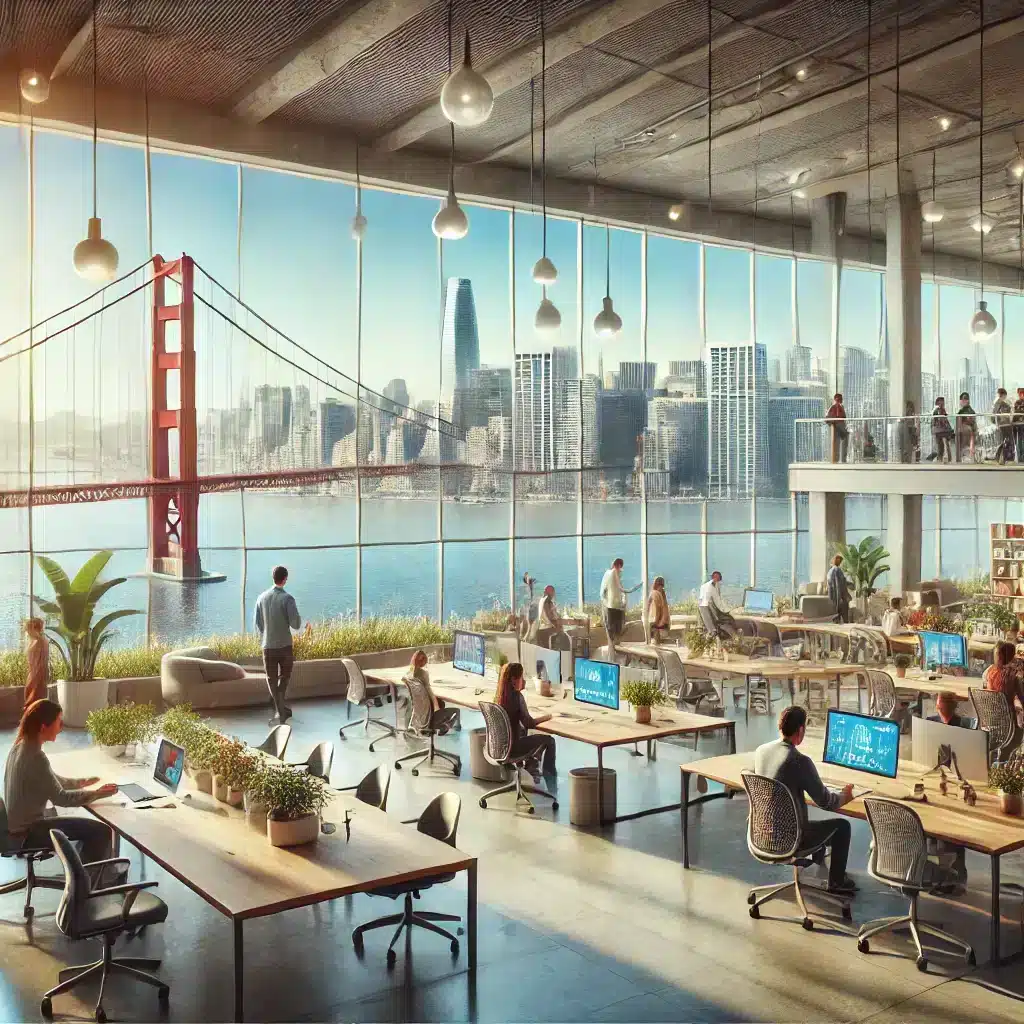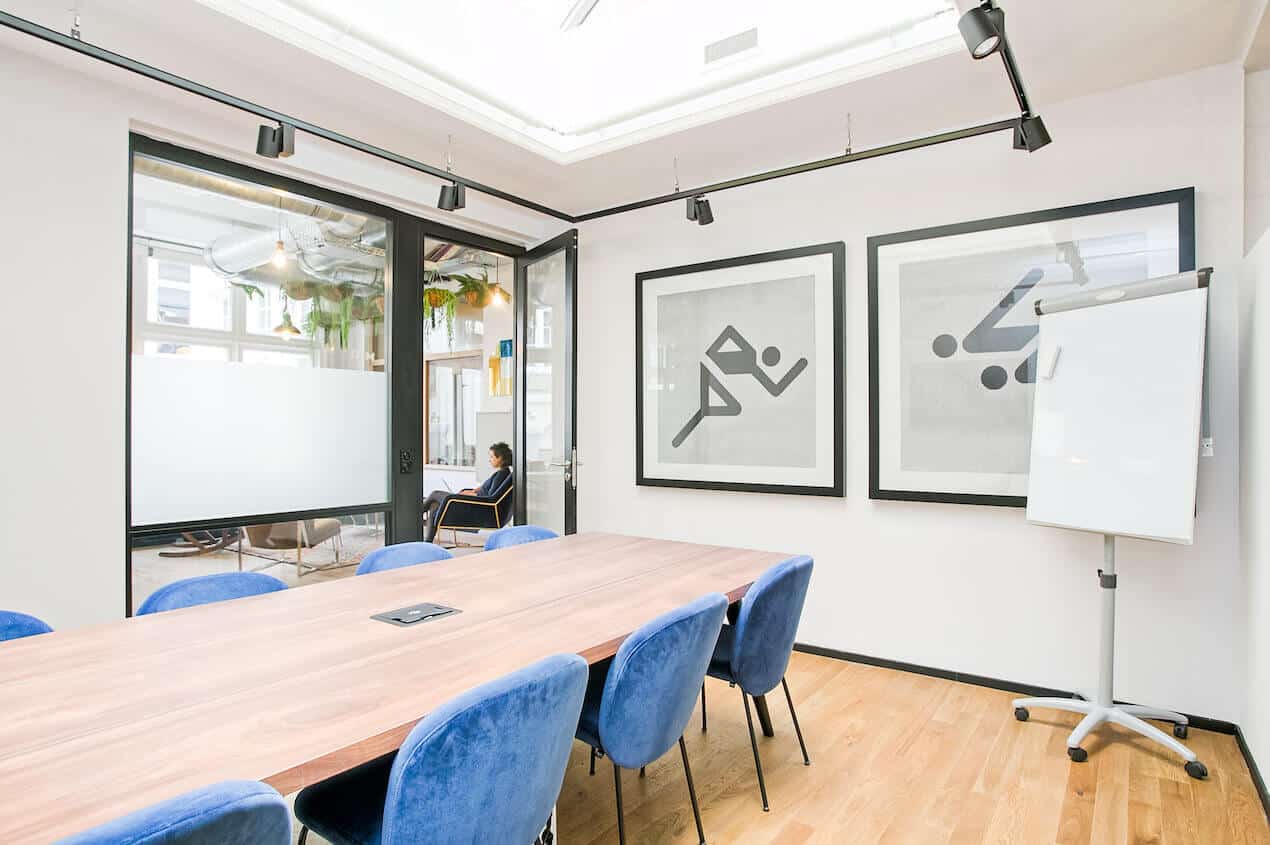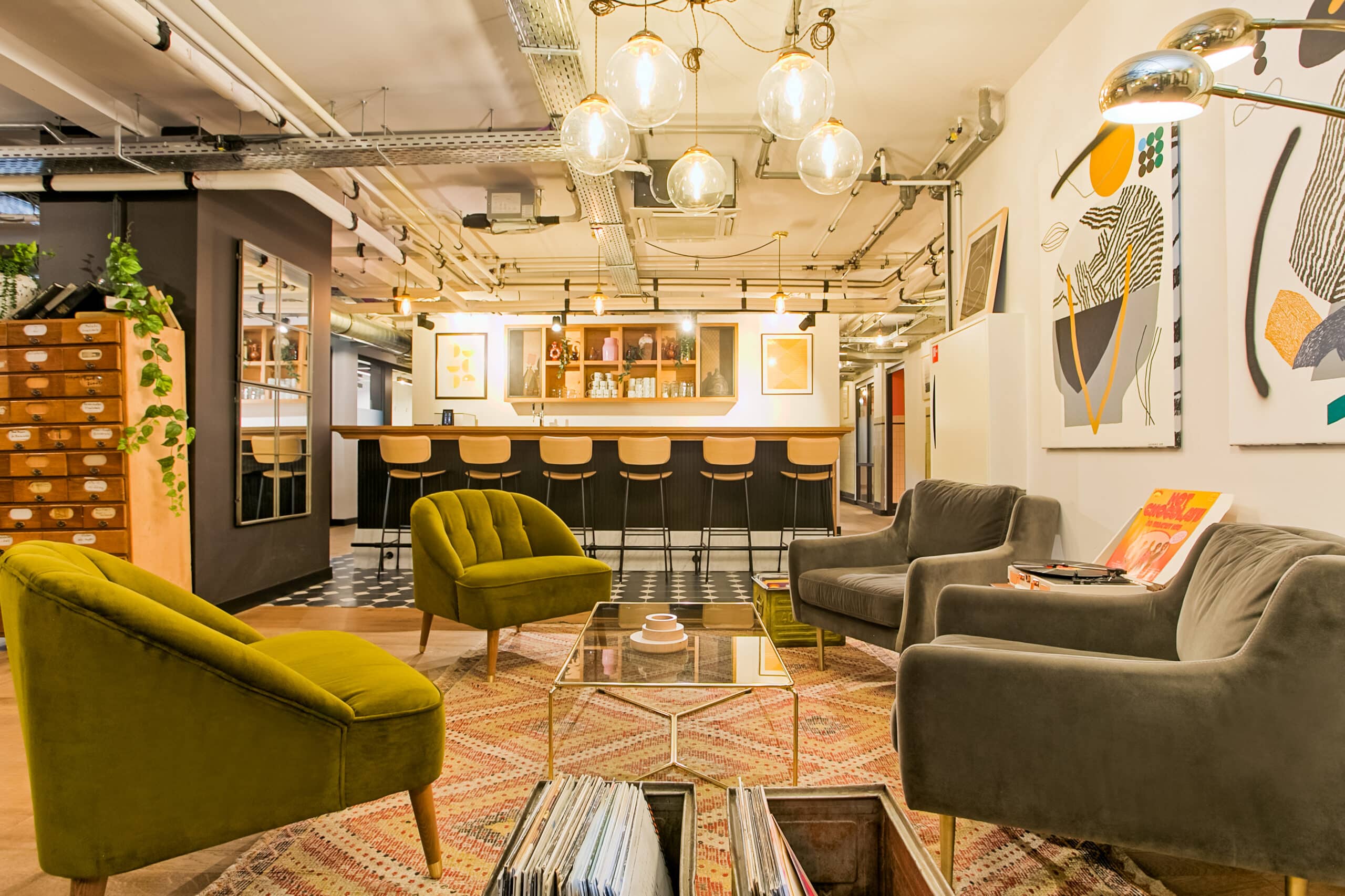
AI Gold Rush: The Impact of Tech Expansions on San Francisco’s Office Vacancy Crisis
While San Francisco has undoubtedly taken some powerful economic hits from the office vacancy crisis, the city has shown it won’t be brought to its knees so easily. In fact, since the pandemic, a slow but steady recovery has been taking place.
Before the pandemic, San Francisco was in the midst of an office boom fueled by a thriving tech expansion. Tech giants like Salesforce, Twitter, and Uber established major headquarters in the city. The South of Market (SoMa) district became a focal point for startups and established firms, driving demand for premium office spaces. When the pandemic hit, it caused a ripple effect of economic uncertainty and a massive shift to remote work, turning the initial office boom into a bust.
However, the comeback — mainly due to the emergence of Artificial Intelligence — will be one to watch. This technology has the potential to reshape the tech scene as we know it while ushering in a fresh wave of demand for talented employees and office spaces that can accommodate new ways of working.
The AI Gold Rush: A New Era of Tech Expansion
San Francisco has seen its fair share of evolution and innovation. The gold rush in the mid-1800s put California on the map and exponentially increased the city’s population. The first technology boom in the early 20th century, followed by the birth of Silicon Valley in the 1970s and 80s, has firmly established San Francisco as one of the most well-known tech hubs in the world.
The AI gold rush in San Francisco shows promise in shifting the tide of the city’s office vacancy crisis, creating a renewed demand for office space and drawing in a new generation of tech talent.
AI Startups and Investments
Given its legacy of innovation attributed to tech giants like Apple, Google, and Amazon, it comes as no surprise that San Francisco is quickly becoming a global leader in the AI sector. Many of these same tech giants and venture capital firms are now investing in AI technology, spurring its growth. In Q1 of 2023 alone, more than 75% of global AI funding was traced back to the San Francisco Bay area. OpenAI secured a $6.6 billion funding round, and Anthropic has recently received an additional $4 billion investment from Amazon, helping it remain a strong competitor in the space. Thanks to funding, AI startups like OpenAI and Anthropic continue to gain traction.
The Demand for Tech Talent and Office Space
As AI-based companies continue to grow, so does AI-driven office demand and the need for talented tech employees to fill those spaces. San Francisco has a leg up in providing this talent right out of the gate thanks to the area’s concentration of top-tier universities and research institutions.
With more AI startups taking root in the region, the demand for office space is also increasing. While growth is nowhere near what it was pre-pandemic, there are early signs of recovery. According to a report by commercial real estate firm CBRE, while there was a slight increase in the office vacancy rate between Q1 and Q2 of 2024 (from 36.7% to 36.8%), this has been the smallest increase since the pandemic hit. Thankfully, the adoption of AI technology shows no signs of slowing down, which is great news for the commercial real estate industry.
The Growing Office Vacancy Crisis
So, what caused the crisis in the first place? The 2020 pandemic — unexpectedly hitting right in the midst of San Francisco’s office boom — created a domino effect of events. These included:
- The onset of remote work: When Covid-19 hit, many companies went fully remote. Even as an increasing number of businesses have returned to having employees in the office once again, remote work has become a norm where it wasn’t before. A culture of flexible and hybrid work has emerged, changing the way in-office work is conducted and making long-term commercial leases less appealing.
- Economic uncertainty: The pandemic also had a negative economic impact, and the resulting downturn introduced more uncertainty for businesses than ever before. In response, companies began cutting costs wherever possible through layoffs and office downsizing. With remote work becoming more common, one of the first areas to take a hit was San Francisco’s real estate market, as companies began cutting back on office space or eliminating their office spaces altogether.
- Increased sublease space: This downsizing has continued the domino effect, as companies (including big players in the tech industry, like X (formerly Twitter), Salesforce, and Meta) continue to place excess office space they no longer need on the sublease market. However, the expansion of AI technology seems to be creating a much needed light at the end of the tunnel — and a renewed demand for office space. Rents are stabilizing, and leasing volume is slowly increasing.
The Impact of AI Expansion on Office Demand
The release of ChatGPT in 2022 marked the beginning of this uptick in office demand. OpenAI (the creator of ChatGPT) and other AI firms have collectively leased over 1.7 million square feet of office space in San Francisco. This demand is projected to grow as more startups enter the AI arena. While big tech companies are moving out or scaling back, smaller startups are reaping the benefits of these vacant spaces and establishing themselves as significant players in San Francisco’s tech ecosystem. These AI-based companies, coupled with new ways of working brought on by the pandemic, are also creating demand for different types of workspaces.
How Flexible Workspaces Benefit from AI’s Expansion
Flexible spaces, also known as coworking spaces (like Mindspace’s Market Street location in San Francisco), have become increasingly popular in the wake of the pandemic. AI companies and startups, in particular, have come to favor the adaptable environments these types of offices offer, which more easily accommodate scaling teams and hybrid work models.
With the shift to hybrid work schedules gaining popularity, in-person office time has trended away from individual work that employees can do remotely. Instead, it tends to focus more on collaborative work. True to their name, coworking spaces excel at meeting this new demand and emphasize more collaborative environments, featuring areas with open floor plans and communal spaces.
Mindspace’s Role in Supporting AI-Driven Companies
At Mindspace, we’re proud to offer coworking spaces that can scale up or down with a company’s needs while providing thoughtfully designed environments for employees, enhancing productivity and collaboration. Our San Francisco location offers flexible workspaces for AI companies, from private offices to comfortable lounges and event areas designed to foster collaboration and innovation.
For teams with a mix of remote and in-office employees, our amenities include high-speed internet and IT services to ensure seamless connectivity between team members. Situated between the Financial District and SoMa, Mindspace San Francisco offers easy access to public transportation and proximity to tech hubs like the Moscone Center and Union Square.
If your AI company or startup is seeking flexibility and access to the vibrant community within San Francisco’s tech hub, we can help you find a solution that fits your business needs without the commitment of a long-term commercial lease.
Interested in learning (and seeing) more? Book a tour with us here!




